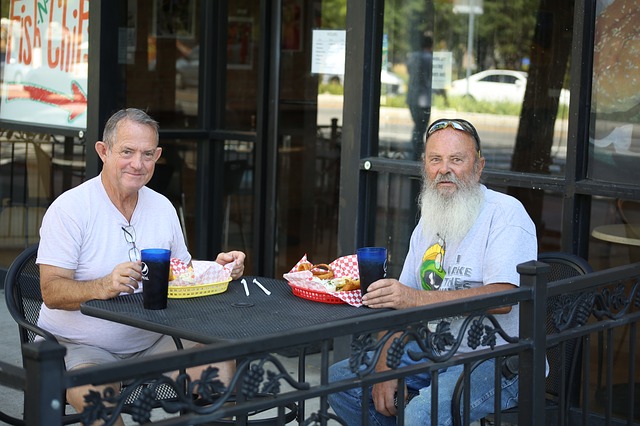Трое в лодке: Collective Numerals in Russian Posted by Maria on Sep 8, 2016 in language
If you look at the Russian translation of Jerome K. Jerome’s Three Men in A Boat, you may be surprised to read “Трое в лодке, не считая собаки.” Why “трое” and not “три”? In my last post on forms that don’t exist in Russian, I briefly touched upon the category of collective numerals. Since they have not been covered on this blog before, I thought this topic merited further exploration.
Forms
Collective numerals are a somewhat archaic group of numbers that apply to a limited set of nouns. They are only really used for numbers two through ten, depending on the category, and have the following forms.
- двое
- трое
- четверо
- пятеро
- шестеро
- семеро
- восьмеро
- девятеро
- десятеро
Detailed declension tables are available in this Russian grammar by Terence Wade.
Usage
Collective numerals are used for the following categories of nouns:
Plural-Only Nouns In Nominative Case (2-4)
Nouns that only have plural forms, e.g. сутки (24-hour day), похороны (funeral), ножницы (scissors), are preceded by collective numbers. Collective numbers are obligatory with this category for amounts 2-4; for higher numbers, collective nouns are used formally, but cardinal numbers are much more common colloquially (e.g. пятеро ворот or пять ворот for “five gates”).
Драма продолжалась трое суток (The drama lasted three days). [Штурм завершен, заложники освобождены (2002) // «Известия», 2002.10.26]
Note that in cases other than nominative and accusative, these nouns are preceded by regular cardinal numbers: У нас трое щипцов – Нам не хватает трёх щипцов (We have three tongs – We are missing three tongs).
Masculine/Common-Gender Nouns Referring To People (2-7)
Masculine or common gender nouns referring to people are usually preceded by collective nouns for groups of 2-7: двое мужчин (two men), пятеро судей (five judges), трое сирот (three orphans), четверо друзей (four friends). Note that feminine nouns are used with cardinal numbers: три девушки (three young women).
У меня было четверо двоюродных братьев, ни один не вернулся с войны (I had four cousins; none of the came back from the war). [Аркадий Цирлин, Марина Суркова. Аркадий Цирлин: «Там было страшно» // «За науку», 2013]
Other nouns that follow this pattern are люди (people), лица (individuals), дети (children), ребята (lads), внуки (grandchildren), and adjectives that turned into nouns, such as прохожие (passers-by). In the nominative case, the pattern is collective numeral + genitive plural. In oblique cases, you can choose between declined collective numeral + noun in the same case (e.g., двоим полицейским – to two police officers) or declined cardinal number + noun in the same case (двум полицейским).
Feminine nouns may be used this way colloquially, but using them with collective numerals is considered substandard.
Numerals With No Nouns Referring To People (2-10)
Sometimes, there is no noun following a number, e.g., in sentences like “There were three of us.” We use collective numerals for these cases: Нас было трое.
Четверо их было. Двое спереди и двое сзади. (There were four of them. Two in the front and two in the back.) [Виктор Пелевин. Желтая стрела (1993)]
Collective numerals are also used in expressions like комната на двоих (a room for two) and idioms like семеро по лавкам (literally, “seven [children] on the benches,” meaning someone has many dependents to feed/take care of) and семеро одного не ждут (seven [people] don’t wait for one).
Further Reading
More information on this complex subject can be found in the following:
- Terence Wade – A Comprehensive Russian Grammar
- Валгина Н.С., Розенталь Д.Э., Фомина М.И. – Современный русский язык
- Розенталь Д.Э., Джанджакова Е.В., Кабанова Н.П. – Справочник по правописанию, произношению, литературному редактированию
I would like to leave you with this short clip from the cartoon “Вовка в тридевятом царстве,” which refers to “двое из ларца” — “two from the casket.”

Build vocabulary, practice pronunciation, and more with Transparent Language Online. Available anytime, anywhere, on any device.





Comments:
Svetlana Shulghina:
Мария, спасибо вам большое за вашу работу! Очень профессионально и интересно даже для носителей русского языка, коим я и являюсь. Всегда с нетерпением жду ваших сообщений. Могу я сказать “постов”?
Maria:
@Svetlana Shulghina Спасибо, Светлана. Тема эта, как мне кажется, непростая даже для носителей. Без справочных материалов я бы не знала, какие формы допустимы.
Конечно, в интернете теперь часто пишут “постов”.
Richard:
Maria,
A good post. I have several questions and points I’m confused on.
1.) Do feminine nouns use collective numerals at all?
2.) Are collective numerals used in compound numbers? E.g., Двадцать-пятеро судей.
I realize that in your post you said that collective numerals are used only for numbers two through ten, but I just want to make sure about compound numerals.
3.) Are collective numerals mostly used with animate nouns? At first glance it looks that way.
4.) How common are collective numerals in colloquial speech or written language.
Also, I noticed a small typo. “There was three of us” should be “There were three of us”.
Maria:
@Richard Hi Richard,
Thank you for your comment. I see the list fine! I’ll try to answer to the best of my ability, although this topic is challenging to learners and native speakers alike.
1) Not normally.
2) Anything beyond ten sounds a bit weird, and the sources I’ve seen say they rarely go above seven.
3) They are also used with inanimate nouns that only exist in the plural, like сутки.
4) I would say they are the only accepted variant for “small” numbers with a certain limited group of nouns like двое детей or трое суток (you wouldn’t normally say “два ребёнка” or “три сутки”), but not so much with larger numbers.
Thank you for the catch; I’ll fix it.
Richard:
Hm, so much for formatting a list! LOL
Mark S:
You can also get the declension/conjugation/etc of pretty much any word from this invaluable thing:
http://starling.rinet.ru/cgi-bin/morphque.cgi?flags=wndnnnn